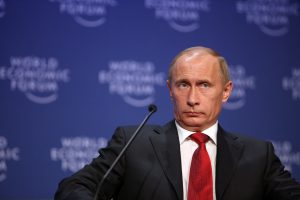The greatest lessons of this crisis are yet to come. They will depend on the choices that the Russian president will now make, but this Ukrainian arm wrestling has already corrected four preconceived ideas.
The first is that the European Union’s energy needs would make it as dependent on Russia as a drug addict is on his dealer. This was a deep-rooted fear. It was this fear that had led the Baltic States, Poland and the United States to constantly warn the Germans against the contracts they were signing with Gazprom, but what is happening now?
Well, after much hesitation at the prospect of a winter without heating, Germany has come to accept the possibility that an entry of Russian troops into Ukraine would prevent the new Nord Stream 2 pipeline from being put into operation. Germany is finally ready to turn its back on Russian supplies because it realised, like all its EU partners, that European reserves could last until spring; that there were other suppliers on earth than Russia; that Norway would not put up a hard bargain for its help; that the cost of bringing in gas from Qatar, the United States or Algeria would ultimately be much less than the cost of a war; and that Russia, above all, could not use its gas as easily as a column of tanks.
Not only can the Russian economy not do without its energetic exports, not only can a supplier not question its contractual commitments without risking the flight of its customers, but if Russia had only China to sell its gas to, it would be putting itself in the hands of a power immensely richer than itself and ten times more populous.
This would not be the best choice and the second idea belied by this crisis is that of the political disunity of the 27. This idea is so widely accepted that few analysts have not considered that the centralisation of Russian power was the Kremlin’s major asset in the face of the multiplicity of European decision-making centres. This did not seem debatable, as the interests, geography and history of the EU member states are indeed diverse, but faced with the concentration of Russian troops on the Ukrainian border, European capitals closed ranks even more sharply than they had done last year in the face of China’s hardening.
From Vilnius to Lisbon, from Copenhagen to Rome, the 27 have now realised that it is only together that they can meet the multiple challenges they are facing: the disinterest of the United States, the chaos of the Muslim worlds and the convulsions of the Soviet break-up. Although they have not yet been able to create a common defence, they have understood the need for their political unity, which is now imposed on them as a treaty that has yet to be adopted. This is a new reality on the international scene. It is time to stop underestimating it and the third mistake corrected by this crisis is the announcement of the political death of Joe Biden.
It was said that he was politically buried by his failures in Congress and consumer price inflation, but when confronted with the Kremlin, this Cold War-trained president has rediscovered the fighting spirit of his youth and is not backing down an inch. Not only are the Russian manoeuvres bringing the United States back into Europe and reconstituting an Atlantic front, but they have put the American president back on stage in a role that the Republicans cannot reproach him for taking on.
Unexpectedly, this reversal of fortune reveals a fourth mistake. Look at China, it was said. Look at the audacity with which Russia is using its weapons. Democracies are in crisis, it was being hammered in the public discourse, and the denial of the Enlightenment is on the rise. Decadence is Atlantic and efficiency is Eastern, it was added with such a tone of evidence that the idea of the end of Western primacy was no longer hardly contested. This was the zeitgeist, but this banal certainty now seems to have been seriously undermined by the isolation of China and the change in the situation introduced by the Ukrainian crisis.


